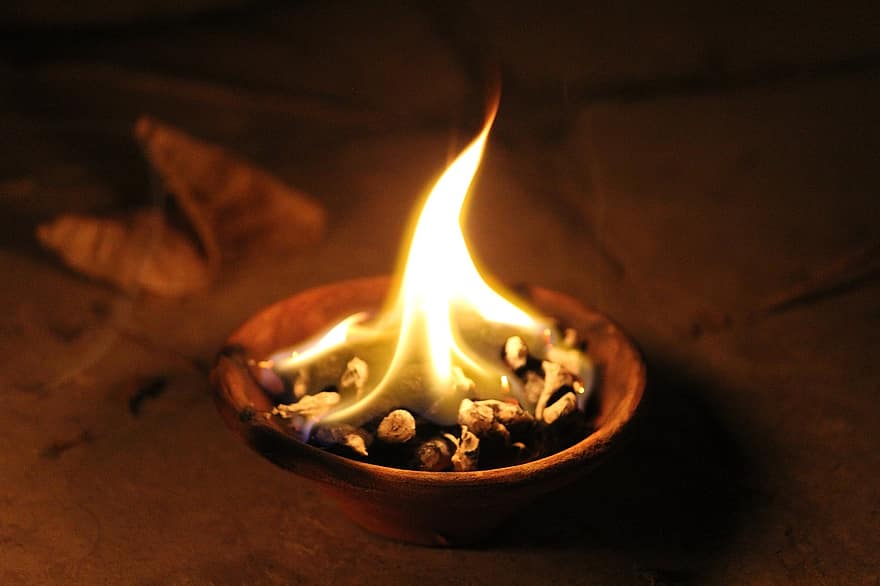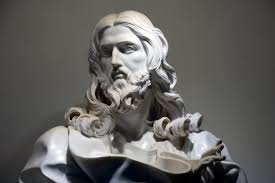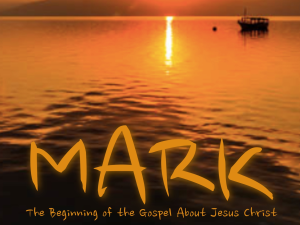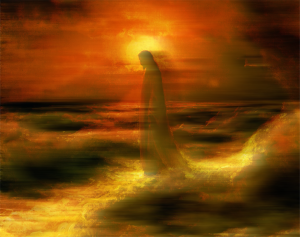In 1 Thessalonians 5:17 St. Paul teaches, “Pray constantly; and for all things give thanks to God, because this is what God expects you to do in Christ Jesus” (Jerusalem Bible). A simpler translation renders this verse as “Pray without ceasing.” Tertullian of Carthage instructs, “Of prayer, nothing at all has been prescribed, except clearly ‘to pray at every time and every place…’ why should we not understand that, with absolutely perfect indifference, we must pray?” This admonition — that we must work to achieve an omnipresent state of “perfectly indifferent” prayer, or in simpler words meditation — might come as a shock to contemporary Christians who, unfortunately, are increasingly distant from the original meditation tradition. Many Christians now associate meditation with non-Christian eastern traditions, but really, the prolonged “indifferent” Christian prayer that we ought to pray is not much different than oriental meditation. For the sake of ease, I will now be referring to this specific style of prayer as “meditation.”
When we are taught to “Pray without ceasing” St. Paul doesn’t mean you should spend all of your waking hours prostrated in prayer! Rather, he is talking about being in a constant state of thanksgiving, echoing the Psalmist in Psalm 105: “Give thanks to Yahweh, call his name aloud/proclaim his deeds to the peoples!/Sing to him, play to him/tell over all his marvels!/Glory in his holy name/let the hearts that seek Yahweh rejoice!” (Psalm 105:1-3). The easiest way to maintain this state of mind is to train the mind to be able to reach prolonged states of intense contemplation. Sitting down to devote an hour or even 30 minutes to God can help you to feel the Holy Spirit at that moment, but more importantly, you are cultivating your mind and attaining insights that you continue to carry with you. Spontaneous prayer arises out of having insight into the all-encompassing significance of prayer, an insight that is best taught experientially through cultivating various states of contemplation.
The key to meditation practice is found in an esoteric reading of the Bible and careful study of ancient wisdom traditions which, east or west, all testify to the power of deep contemplation. People sometimes oversimplify meditation to be just about “clearing your mind” or sitting down for a long time focusing on your breath. That is fine, but decontextualizing your meditation practice from religious teaching is unlikely to have as lasting an impression. Jesus said, “I tell you solemnly, till heaven and earth disappear, not one dot, not one little stroke, shall disappear from the Law until its purpose is achieved” (Matthew 5:18). Esoterically, this verse means that awakening the Christ nature within requires the mastery of not just the higher mind, but also the lower mind. To awaken Christ mystically, you must first awaken Christ intellectually. In the spirit of “precept upon precept, line upon line, here a little and there a little” (Isaiah 28:13) let us proceed to look at the Bible in an esoteric way to uncover the teachings of attaining the Christ nature within.
Phillippians 2:6-8 reads “His state was divine, yet he did not cling to his equality with God but emptied himself to assume the condition of a slave, and become as men are; and being as all men are, he was humbler yet, even to accepting death, death on a cross.” Here we can see that death does not just mean physical death, but a deeper rift between Jesus’s godly nature and His descended condition, which is echoed in His cry of abandonment on the cross (“My God, my God, why hast Thou forsaken Me?”). This is not unique in the Bible; death usually signifies something deeper than just the end of mortal life. This is shown when Yahweh God tells Adam and Eve not to eat of the tree. Genesis 2:17 says, “The day you eat of it you shall most surely die.” Obviously, this didn’t refer to physical death, because when Adam and Eve ate the fruit of the tree they did not physically die. Like with Jesus’s Passion, death here signifies being abandoned by God. Jesus, being fully man as well as fully God, echoes our anguish in being separated from God, but through the mystery of His Incarnation, the hope of reconciliation manifests. Jesus’s prayer to His Father in the Garden of Gethsemane is a divine mystery through which Jesus’s Ascension back to His Father is foreshadowed even as He experiences the bitter pain of abandonment. And as we too have the hope of reconciliation with God, we too must follow His example and pray. Jesus told St. Margaret Mary Alacoque “I will make you partake of that sorrow unto death which it was My will to suffer in the Garden of Olives. United with Me in the humble prayer which I then offered to My Father.” Understanding the profound significance of this event, not only as part of Jesus’s redemptive passion which would provide for the remission of sins but also as a mystery in which we are called to partake in, let us examine the account of the garden of Gethsemane esoterically.
“After psalms had been sung they left for the Mount of Olives.” (Matthew 26:30) First, we must establish what the Mount of Olives signifies. The Mount of Olives, or the Garden of Gethsemane, like other gardens in the Bible, signifies purity and fruition. In Genesis we read, “Yahweh God took the man and settled him in the garden of Eden to cultivate and take care of it” (Genesis 2:15). The garden represents the plane of the mind that is fertile (“From the soil, Yahweh God fashioned all the wild beasts and all the birds of Heaven” — Genesis 2:19) where virtues of the soul are brought forth. Singing psalms implicates the elevation of the self; through psalms, one acquires the spirit of thanksgiving proper to ascend to the Garden of Gethsemane.
“Jesus said to his disciples, ‘Stay here while I pray.’ Then he took Peter and James and John with him” (Mark 14:32-33). Peter, James, and John are generally considered Jesus’s most favored of the disciples; this exact trio shows up several times throughout the Bible. They signify faith (Peter), the intellect (James), and love (John). Notably, these are the only disciples, and therefore the only qualities of the self, that are permitted to ascend to the Garden.
“When they reached the place he said to them, ‘Pray not to be put to the test’” (Luke 22:40). As Peter, James, and John represent faith, the intellect, and love, here Jesus is saying to treasure the virtues of faith, the intellect, and love, and to pray that they do not waver. As we will read, even these virtues are not infallible; however, preemptively rejecting them prevents us from transcending them. To the contrary of rejecting the virtues, Jesus tells the disciples, “My soul is sorrowful to the point of death. Wait here and keep awake with me” (Matthew 26:38).
“Then he withdrew from them, about a stone’s throw away, and knelt” (Luke 22:41). Here, the soul is still very near to the three virtues, only a stone’s throw away, but it has “withdrawn” from them, prepared to transcend.
“He threw himself on the ground and prayed that, if it were possible, this hour might pass him by. ‘Abba (Father)!’ he said. ‘Everything is possible for you. Take this cup away from me. But let it be as you, not I, would have it’” (Mark 14:35-36). The “cup” in esoteric literature is traditionally understood to be a receptacle of wisdom; so the Pistis Sophia says “A higher power bringeth a Cup full of intuition and wisdom.” This verse is demonstrating the disconcerting quality of wisdom; our primal instinct flees wisdom, but the Christ nature turns over the instinctive self to God. The human aversion towards wisdom is well documented throughout theology, psychology, and history. The primordial human problem can be seen to be the human preference of illusions over reality; indeed, the comical lengths that each one of us will go to in order to maintain the illusion is inexplicable. The triumph over the instinct of delusion is fulfilled only in the elusive Garden.
“Then an angel appeared to him, coming from heaven to give him strength” (Luke 22:43). This verse demonstrates that despite the utter isolation experienced by Christ in the Garden, it is impossible for Him (or for us) to ever be completely severed from the Heavens above, and always the Father is with us sending His heavenly messengers to embolden us for the coming battle.
“He came back and found them sleeping, and he said to Peter, ‘Simon, are you asleep? Had you not the strength to keep awake one hour? You should be awake, and praying not to be put to the test. The spirit is willing, but the flesh is weak’” (Mark 14:37-38). Here we see the failure of the three virtues. Sleep signifies oblivion; this passage shows that the three virtues do not together contain all wisdom, but that the Christ nature transcends them. “Flesh” represents the lower nature of the self; spirit, as Gaskell put it, is the “formative aspect of the Divine outpouring.” In other words, the spirit is the receptacle in which God resides in us. When we are “put to the test,” for the Christ nature to rise within us the spirit must ultimately transcend the weaker virtues of the flesh.
“Again he went away and prayed, saying the same words…He came back a third time and said to them, ‘You can sleep on now and take your rest. It is all over. The hour has come’” (Mark 14:39;41). The number “three” represents completeness, as in the Holy Trinity and the Resurrection (Jesus arose from the dead on the third day). The number denotes that something transformative has transpired here. By saying “It is all over,” Jesus is foreshadowing His final victory on the Cross — “It is consummated” (John 19:30). The spirit has finally triumphed over the weaker aspects of the self, and the weaker self can “rest.” This calls back to Genesis 2:3; “God blessed the seventh day and made it holy because on that day he had rested after all his work of creating.” Of course, the word “day” does not refer to a 24 hour period but to the final stage that follows the creative period. In the Garden of Gethsemane, Jesus has finished His anguished mystery, and His disciples, not destroyed but in a state of repose, are justly restored to the rest that has no end.
An esoteric reading of the Garden of Gethsemane provides us with a template wherein the Christ nature in us triumphs over the weaker flesh. Through understanding the significance of the Garden, may you feel driven to start a practice of contemplation so that you may experience this elusive mystery yourself.











